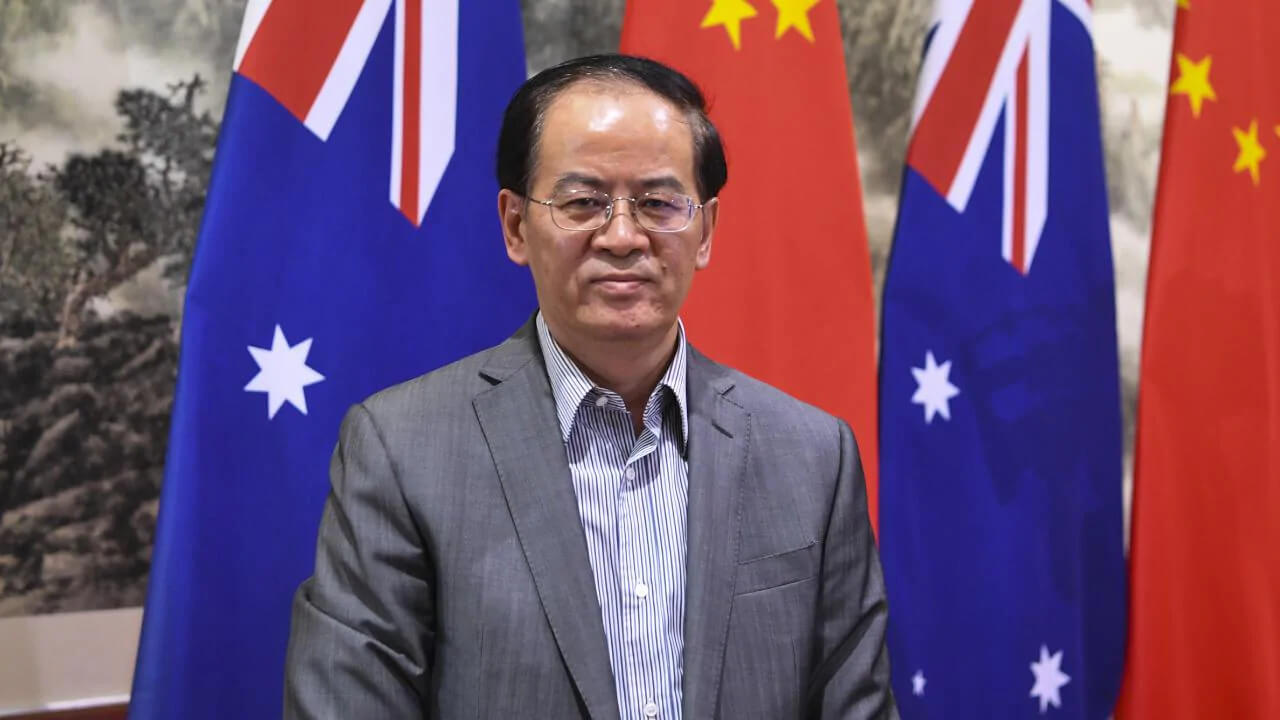China issued yet another warning to Australia amid escalating tensions between the two countries during the ongoing coronavirus pandemic. An article from the Global Times warns that it would be “extremely dangerous” for Australia to continue its offensive against China, and said that PM Scott Morrison’s government must “distance itself” from the United States. Only last week, the same outlet released a piece labelling Australia as a “giant kangaroo that serves as a dog of the US”.
The Global Times is a subsidiary of the People’s Daily, which is an official mouthpiece of the Communist Party of China (CCP). It is renowned for its hawkish and brash approach to–and commentary on–diplomatic issues. Experts thus contend that the outlet apparently represents what officials and party members are thinking behind closed doors.
While the US is a key strategic partner, China is Australia’s largest trading partner, and thus the article threatens that support for the US could result in a “fatal blow” to Australia’s economy. Amid what Chinese officials have referred to as a ‘new Cold War’, the article says, “It would be extremely dangerous for Canberra to become a player in a diplomatic club led by the US, given Australia’s high dependence on the Chinese economy.” It adds, “Australia's economic deterrent force is much smaller than the US’, so China to some extent will enjoy more room to fight back against Australia with countermeasures if Canberra supports Washington... it means Australia may feel more pain than the US.”
In recent weeks, the US Department of State has begun working with the Department of Commerce to develop a plan to shift global industrial supply chains from China. This could severely impact China’s economy, especially considering the vulnerability of its economy amid the ongoing pandemic, wherein its exports are 17.2% lower than at the same point last year.
Australia has antagonized Chinese officials during this crisis and appeared to take sides with US President Donald Trump. Foreign Minister Marise Payne and PM Scott Morrison have called for an international investigation into the origin and causes of the coronavirus, with a focus on China’s complicity and culpability. While the ultimate WHO resolution–which passed with the support of close to 140 nations, including China and Australia–made no mention of China, Australia’s actions prior to this will not have been forgotten. Payne also expressed “deep concern” at the proposed new security law in Hong Kong, which would ban “treason, secession, sedition, and subversion” and set up Chinese law enforcement agencies within the Special Administrative Region (SAR).
China’s Ambassador to Australia, Cheng Jingye, has said that Australia’s calls for a global inquiry are “dangerous” and “politically motivated”. Cheng further warned that it could lead to a Chinese boycott in terms of students, tourism, and exports. While Senator Payne rejected Cheng’s “economic coercion” tactics, China ultimately made true on its threats.
Two weeks ago, China’s Ministry of Commerce (MOFCOM) announced tariffs of up to 80% on Australian barley producers for dumping. Furthermore, a Bloomberg report suggests that China is considering stricter quality checks, anti-dumping probes, tariffs, and customs delays on a host of other Australian imports, including wine, dairy, seafood, oatmeal, and fruit. China also blacklisted four Australian slaughterhouses.
While these tariffs may or may not be related to Australia’s scrutiny of China, it is clear that Australia may be coerced into rescinding some of its calls for transparency and accountability from China. At the same time, it is evident that Australia’s economy is highly dependent on China. For instance, China alone accounts for 60-70% of Australian barley exports.
Morrison has recently engaged in some damage limitation, adding that Australia shares a “mutually beneficial” relationship with China and that Australia would continue to respect “China’s sovereignty, and their independence”. In addition, last week, Agriculture Minister David Littleproud said that Australia will not retaliate against China’s tariffs as a “trade war benefits nobody”.
Thus, given that the Global Times operates as somewhat of an unofficial mouthpiece of the Chinese government, Australian officials are sure to be concerned about further reprisal by China. In response, Australia may choose to dial down its criticism and indeed its involvement in issues involving China.
China Warns Australia of “Extremely Dangerous” and “Fatal” Consequences of Supporting US
May 25, 2020

IMAGE SOURCE: THE AUSTRALIANChinese Ambassador to Australia Cheng Jingye
